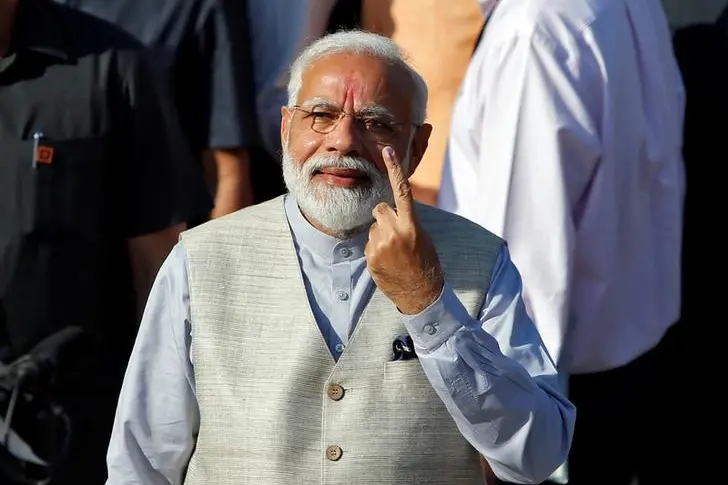PHOTO
MUMBAI - Narendra Modi’s rise will force Indian regulators and legislators to keep their armour on. Indians have re-elected the prime minister’s Bharatiya Janata Party with a bigger mandate than in 2014 when it had a landslide win. Voters seem unfussed about checks and balances.
The former tea-seller’s popularity is due in part to admirable plans for his country, including reliable electricity supply and better sanitation. His progress tackling entrenched corruption has inspired and started to make a difference. He boasts a tough-guy image, too, bolstered after ordering air strikes on Pakistan in February.
Yet he has also struck at institutions traditionally admired for independence. At the Reserve Bank of India, for example, New Delhi forced through a banknote ban, pushed for surplus reserves to be released, and stacked the board with government nominees. Two governors quit in quick succession over the past five years. Meanwhile, the reputation of the Election Commission has been tarnished. Prior to losing the national campaign, the opposition Congress party accused the institution of bias, adding to a rapid decline in people’s respect for the body under Modi.
There are worries about the judiciary and the press too. In 2018 four Supreme Court judges held a press conference implying, according to Congress parliamentarian and respected historian Shashi Tharoor, that the Chief Justice was allocating cases to secure favourable outcomes for New Delhi. Journalists at national newspapers, dependent on government-led advertising, complain that content critical of the ruling party is frequently spiked. Although highly media-savvy, Modi never answers questions at a press conference. The prime minister and his government have denied any wrongdoing and often repeated their respect for institutions.
Populist assaults on entities perceived as shackling change are spreading around the world. In the Philippines this month, voters strengthened the legislative camp of President Rodrigo Duterte, widely criticised for sending police forces on a vigilante killing spree against suspected drug dealers. U.S. President Donald Trump has continually tried to weaken any bureaucracy that proposes to limit his power. Different varieties of strong men now run Turkey, Hungary, Brazil: the list goes on.
History shows a clear economic downside when politicians take too many shortcuts. For India, Modi’s haste could eventually put democracy, its most valuable asset, at risk.
On Twitter https://twitter.com/ugalani
CONTEXT NEWS
- Prime Minister’s Narendra Modi’s Bharatiya Janata Party on May 23 secured a second term with a stronger mandate.
(The author is a Reuters Breakingviews columnist. The opinions expressed are her own.)
(Editing by Pete Sweeney and Katrina Hamlin) ((una.galani@thomsonreuters.com; Reuters Messaging: una.galani.thomsonreuters.com@reuters.net))





















